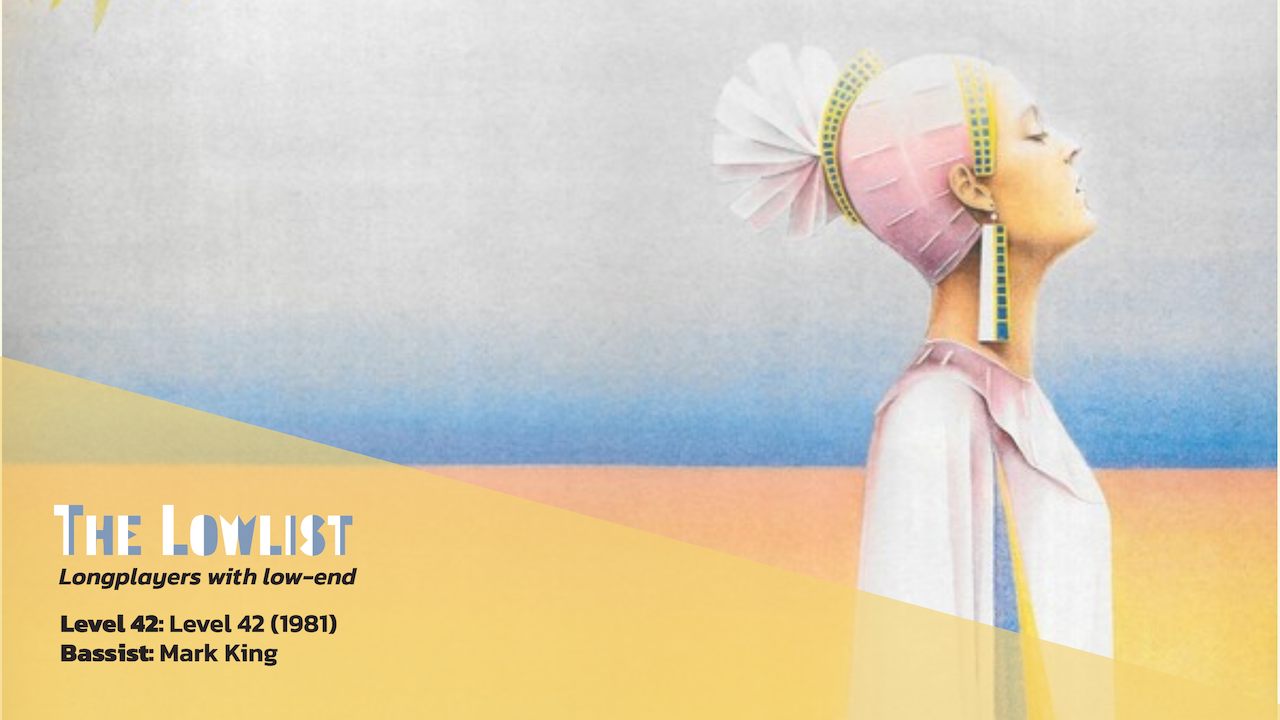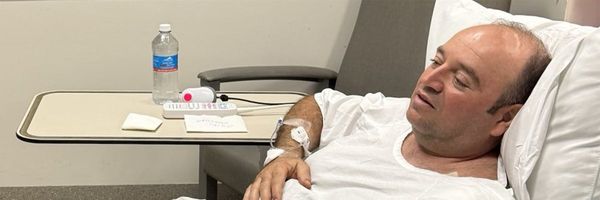
In August 1981, the release of the eponymous debut album by Level 42 made a serious impact on our world. The band – Mark King (bass/vocals), Mike Lindup (keyboards/ vocals), Phil Gould (drums/vocals) and Boon Gould (guitars) – had already whetted the appetite of their audience with singles including Love Games in March ’81, and a slot on the UK's weekly chart show Top Of The Pops which led to a support tour with The Police.
"I can’t overemphasize how important Top Of The Pops was back then," Mark told us. "There was no MTV or any other satellite music stations [in the UK]: you’re talking about one terrestrial TV channel that played a pop show every Thursday night, and that was it."
The album reached number 20 in the UK album chart, remaining there for 18 weeks, and eventually became a Britfunk classic. Mark had adopted a Jaydee Supernatural as his bass of choice, forming a close partnership with John Diggins at Jaydee Custom Guitars and also building a solid relationship with the then-new Trace Elliot company. Light gauge (30/50/70/90) strings were already in use and, although Mark used Yamaha E1010 analogue delay units live, he used them sparingly on this album.
“I picked up my first JayDee bass, which was a Supernatural Classic [serial number 0003SA], from a music shop called Sounds, just off Charing Cross Road in London," Mark said. "We’d just had our first advance from Polydor and had £5,000 to spend on equipping the band with gear and a van, and I’d been allotted £500 to get a new bass.
"I was looking for a Wal, because that seemed to be the most hi-fi bass being made in Britain at the time, but I tried three or four and couldn’t find one that felt right, so I went into Sounds and tried this JayDee. The first thing that caught my eye was it was very Alembic-like, and my hero being Stan Clarke, I thought, ‘This is going to get me up there with all of those American guys!’ So I used that bass for the first four years of the band.”
Turn It On, was the second single and rapidly became a live favorite, played in a different key and taking on a faster tempo and groove. The laid-back album version features a fairly restrained bass part with a fat, woody tone. Zoom to 3’24” for a prime example of Mark’s slap technique.
43, a blistering instrumental, caught the ear of many bass players across the UK and Europe. Here was a new bass hero that players could aspire to emulate; Mark’s slap and pop technique effectively prompted the sale of bass exotica and amplification for more than a decade. The natural tone of the Jaydee had a definite thickness despite the light strings, and remains a prime example of Mark’s slid notes under plucked notes and root-tenth double stops.
Why Are You Leaving? is a fine example of the band’s soul songwriting, featuring a tasteful sax solo from Dave Chambers and additional musicians Leroy Williams on percussion and long-time ‘fifth member’ Wally Badarou in the studio. Mark mixes up the fingerstyle verse bassline with a more punchy slap line in the chorus to emphasize the rhythmic push of Phil Gould’s drumming.
Almost There is one of Mark’s ‘stamina’ basslines, so approach with care! His part begins with a bent harmonic eight seconds into the song; Mark used this technique often, which resulted in the development of the Bendwell string-bending feature on his signature Status Kingbass. It’s clear to see why the bass-playing community was excited by this new exponent of the slap technique, although Mark’s fingerstyle technique is equally impressive.
Heathrow, with its punchy slapped triplet line, took on a whole new persona live as the band let rip, Mark’s bass playing going into overdrive; the album version is something of a blueprint for the extended live version. Love Games probably needs no introduction – its bassline is a Level 42 trademark and the song has remained a staple of their live set for decades.
Dune Tune features a melodic top line that owes a tip of the hat to Stanley Clarke’s Jamaican Boy, with bass players emulating it for decades, while the strummed section from 3’55” is also very Stanley-esque.
Starchild became a club hit when it was released as the third single, and again features a mash-up of Mark’s playing techniques – with a great slapped section in the bridge from 1’17” to 1’34”.
Later Level 42 albums moved away from this style as the band developed, but their self-assured debut remains a gem in the band’s back catalog – and a classic for bassists to get their teeth into.
Level 42 is available to buy or stream.







